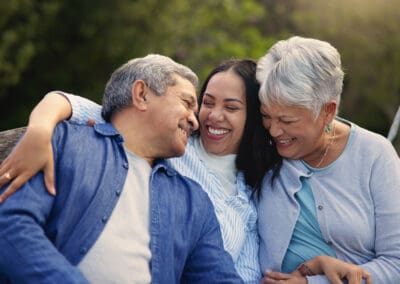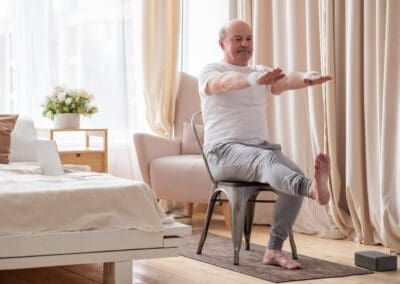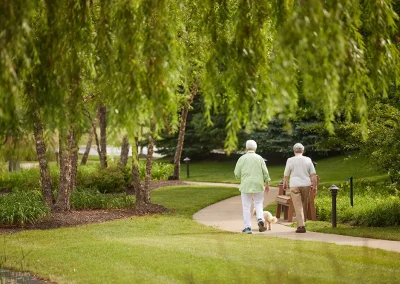There’s more to vitamin D for seniors than building strong bones and painting milk mustaches. As researchers are discovering, vitamin D supports senior health in a variety of important ways. Here are some of the things vitamin D can do for you.
Support Bone Health
Your body needs vitamin D to build strong bones. But most older adults don’t get enough vitamin D, which puts them at higher risk of developing osteoporosis, a disease that thins and weakens the bones and makes them more likely to break.
Build Strong Muscles
A shortage of vitamin D for seniors may also lead to weak, painful muscles. Strong muscles improve stability, which reduces your risk of falling. With falls being the number one cause of injuries among seniors, getting the recommended daily amount of vitamin D could help you stay on your feet and out of the hospital.
May Help Prevent Cancer
In addition to helping build strong bones and muscles, vitamin D also plays an important role in regulating cell growth. It may even prevent the growth of new cancer cells. In test tubes, vitamin D strongly inhibits the growth and reproduction of a variety of cancer cells, including those from the breast, ovary, colon, prostate and brain. It’s promising, but more studies are needed to determine whether vitamin D supplements may reduce the risk of certain cancers.
Reduce Risk of Multiple Sclerosis
This disease occurs when the immune system attacks the protective covering of nerves. It’s more common in areas where people have low vitamin D levels, and rarely occurs in areas near the equator where people have more sun exposure. Research suggests that long-term vitamin D supplementation reduces the risk of multiple sclerosis. In one long-term study conducted by the Harvard School of Public Health involving 200,000 nurses, women who took vitamin D supplements had a 40% lower risk of developing multiple sclerosis than those who didn’t take vitamin D supplements.
Vitamin D Dosage for Seniors
The recommended daily amount of vitamin D for seniors is 600 IU for adults under age 71 and 800 IU for those 71 and older. That doesn’t mean you should start taking a vitamin D supplement right away. Too much vitamin D can be harmful. High levels of vitamin D in your blood can cause nausea, muscle pain, confusion, dehydration and kidney stones.
Taking vitamin D may also interfere with medications you already take, such as cholesterol-lowering drugs or medications to control blood pressure. It’s best to ask your doctor about vitamin D supplements. Besides, there’s an easier way to get your daily D.
How to Get Your Daily Vitamin D

Bask in the Sun
Your body can make plenty of vitamin D on its own when your bare skin is exposed to the sun. A 15-minute walk on most days when the sun’s high in the sky should do it*. You have to be outside though; it doesn’t work with sunlight through a window. Of course, weather conditions aren’t always great for getting your daily dose of sunshine. Especially when Arctic winds are blowing in off the lake. But there are other ways to get your daily D.
*Too much sunlight can age your skin and lead to skin cancers. If this is a concern, supplements may be the way to go.
Foods that Provide Vitamin D
Very few foods naturally contain vitamin D. Fatty fish (mackerel, salmon, sardines and trout) are rich natural sources of this fat-soluble vitamin. Mushrooms also provide a little vitamin D. Most of the vitamin D we get from food, however, comes from dairy products, eggs and fortified cereals. Soy, almond and oat milks are also fortified with vitamin D.
Supplements for Vitamin D
Though labels should be read carefully, taking a supplement of vitamin D could help you reach the daily recommended 600-700 IU of the vitamin. Harvard and the National Institutes of Health suggest reaching for D3 supplements.
Get Your Recommended Daily Amount of Feeling Good
At Sedgebrook, residents’ health is our top priority. That’s why we offer a variety of wellness programs designed to stimulate mind, body and spirit. From drum circles and gardening clubs to cordon bleu dining and a concierge medical practice on-site, residents have all they need to live well. To learn how we can support your health and happiness, contact us.




